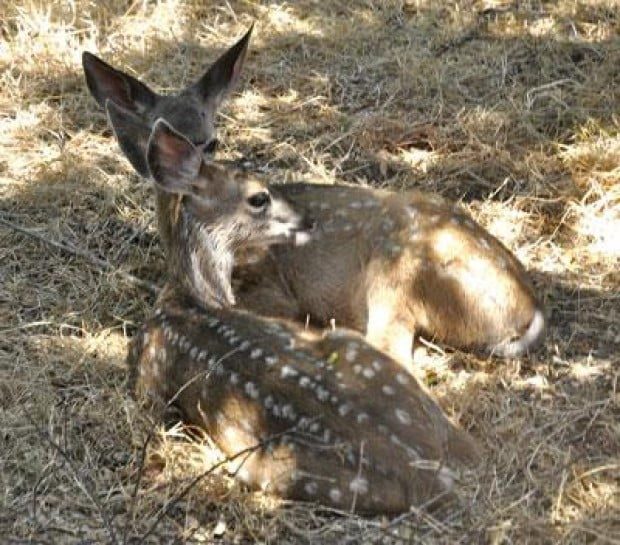
Winding through Malibu Canyon, up the lush, forested road of Piuma, you’ll find Sparrow Road. There lies a refuge for wildlife-the California Wildlife Center (CWC), where injured wild animals get the care they need, and are set free again.
Recently, Executive Director Cynthia Reyes gave a tour of the center to show the effort that takes place to rehabilitate animals and release them back into their natural environment.
CWC cares for all native animals. Currently, wildlife being cared for at the center include coyotes, mule deer, squirrels, skunks, opossums, red-tail hawks, western screech owls, crows, ravens, rock pigeons, house sparrows, mourning doves and hummingbirds.
The staff and volunteers work tirelessly to help change the outcome for each animal that is in their care.
Each species requires their own meals. A “Wildlife Recipe Book” is used to help specially feed the variety of animals.
Animals end up at the center for a variety of reasons, number one being injuries from human interaction such as bullet wounds, pellet wounds, or being hit by a car.
Animals that have been in a fight, an accident or are sick from organic illnesses are also brought in.
It is also common for people to bring animals in that actually would have done better if left alone.
For example, baby birds actually learn to fly from the ground, rather than their nest. Concerned citizens will bring these baby birds in and then they are separated from their family.
The allure of keeping a wild animal as a pet has become a serious problem. Young animals are cute when captured, but soon enough become full size.
Once people realize they are difficult to care for, these animals are released, and therefore become easy prey.
Red-tail hawks, as well as other birds, have come to the center with their flight feathers clipped.
Reyes said, “These animals are not domestic, they are not pets. They don’t behave the same as domestic animals do.”
“Animals can either habituate or imprint” Reyes continued.
Deers will imprint, which means once raised with a human, these animals will forever be accustomed to being fed by and cared for by humans. This process cannot be reversed.
Each year, the number of wildlife the CWC takes in has increased. This year, the center took in more than 3,200 animals. Each year it becomes more challenging to come up with enough resources to care for all these animals. Many people assume California Wildlife Center is state funded, but in fact, it is a nonprofit organization.
They are the only facility that has the resources to rehabilitate and release deer in Southern California.
If you come into contact with what you think is an injured animal, the best thing to do, Reyes said, is to call the center at 818.222.2658.
More information about the CWC can be found online at www.californiawildlifecenter.org
